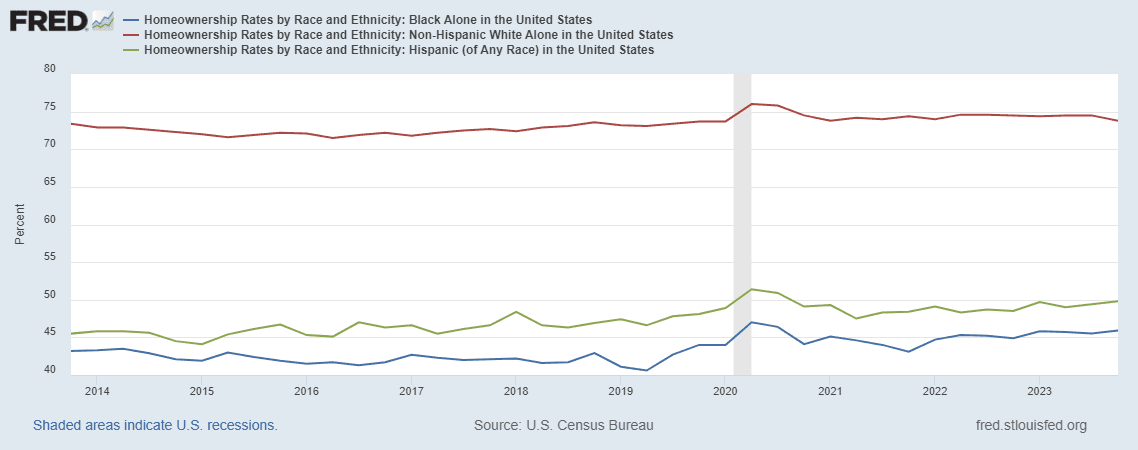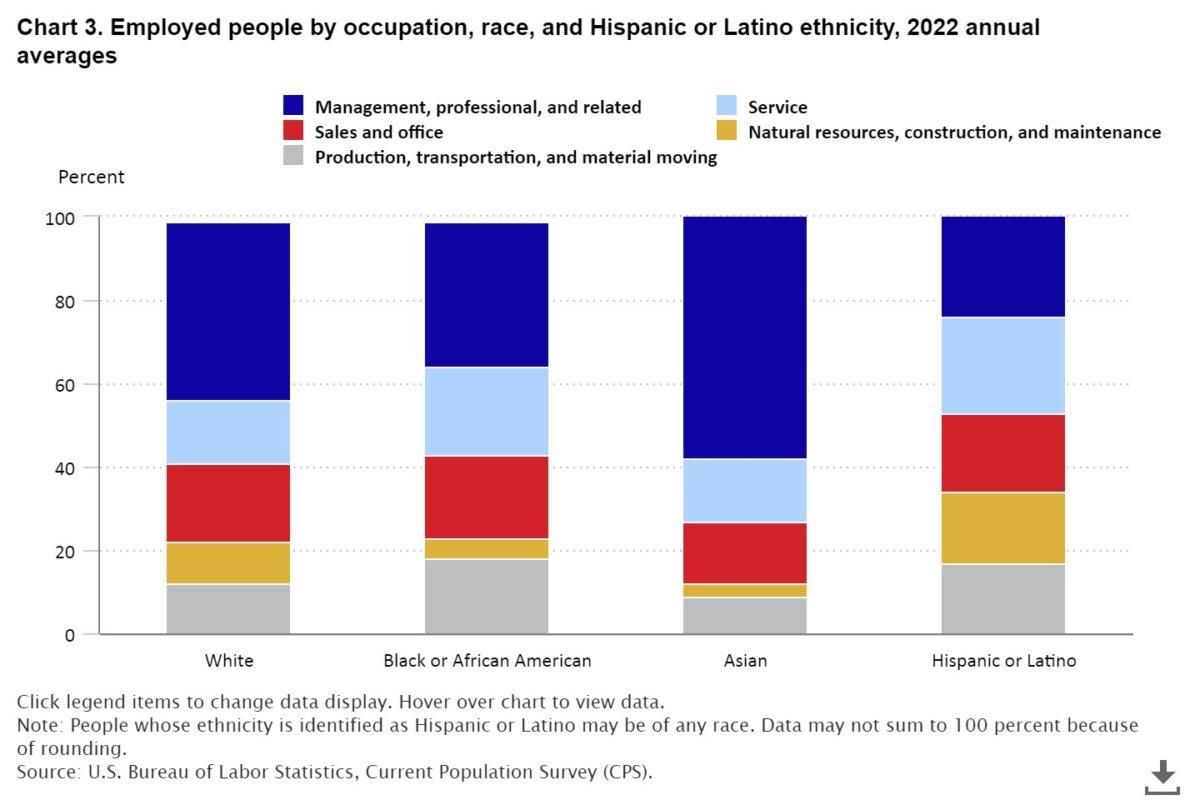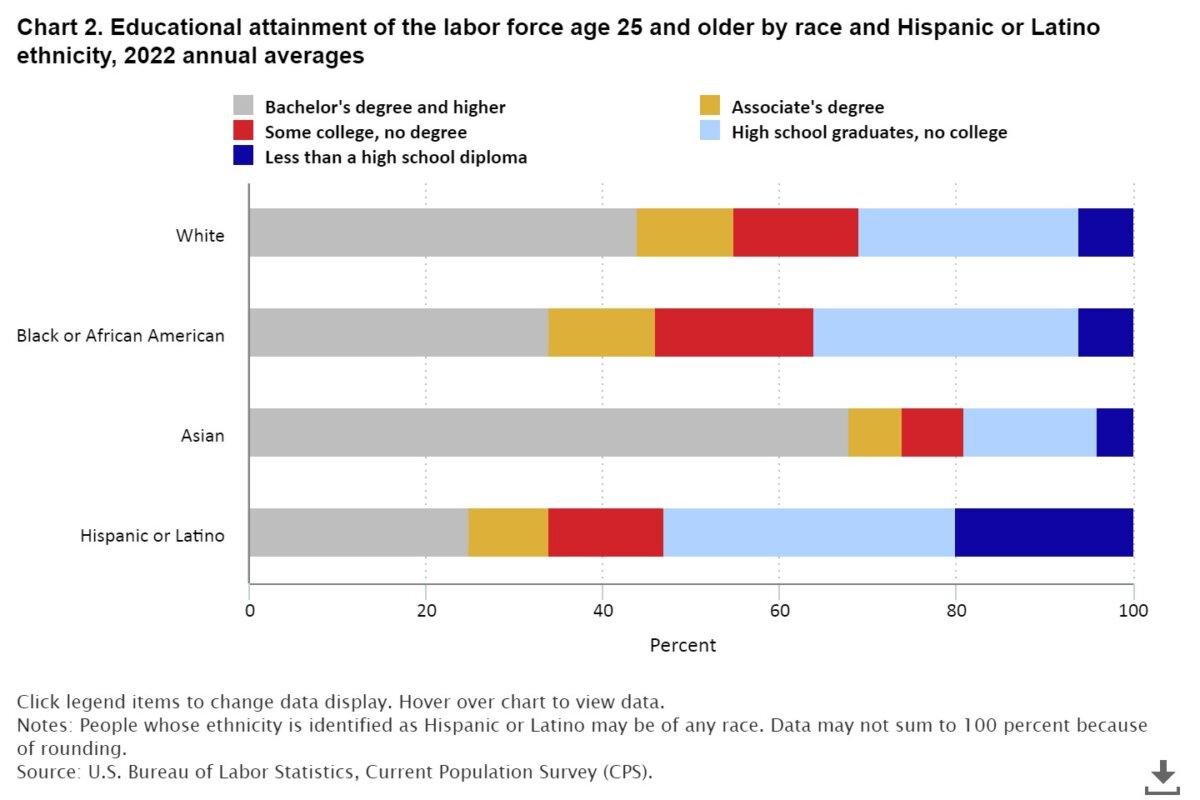(The Epoch Times)—Epoch Times reporter Tom Ozimek recently wrote in these pages of former President Donald Trump’s encounter with Kayla Montgomery, a young Republican political consultant whose business is to “engage young, black professionals, students, and community members” in the Atlanta area. The ex-president and Ms. Montgomery met at a Chick-fil-A restaurant during an impromptu campaign stop in Atlanta. Ms. Montgomery was effusive in her praise of President Trump, saying, “I don’t care what the media tells you, President Trump—we support you!” A video of Ms. Montgomery and the former president hugging soon went viral, even as the media and Democrats quickly dismissed the interaction as “staged.”
Then, last week, President Trump left his trial in Manhattan to visit a bodega in Washington Heights, a mostly black and immigrant community on the Upper West Side of Manhattan and received a hero’s welcome from the working people there.
Whether the Chick-fil-A event was staged or not is open to debate. What is undeniable, though, is that polling shows Donald Trump has upended much of the black and Hispanic voting support Democrats have enjoyed since at least Lyndon Johnson’s “Great Society” and, at least in some instances, back to FDR’s New Deal.
A Wall Street Journal poll showed that President Trump’s support among black men in swing states had moved to 30 percent earlier this month compared to just 11 percent of black men nationally in 2020. Among black women, those same percentages went from 6 percent in 2020 to 11 percent in April.
‘It’s the Economy, Stupid!’
Political pundits and editorial pages all seem flummoxed by President Joe Biden’s erosion of support among the traditional Democrat coalition.
But no one seems more upset by the erosion of black support than Democrat political strategist James Carville, “the Ragin’ Cajun,” who engineered Bill Clinton’s 1988 victory over incumbent George H.W. Bush. That’s ironic, because it was Mr. Carville who added the memorable phrase “It’s the economy, stupid!” to the American political lexicon when he pinpointed President Bush’s greatest vulnerability 36 years ago.
Between January 2021, when President Biden took his oath of office, up to March of this year, average rents have increased by 20 percent. By comparison, residential rents increased just 12 percent during President Trump’s entire term. The increased costs hit blacks and Hispanics disproportionately because of the vast disparity in home ownership, as illustrated below.

Blacks and Hispanic workers also disproportionately occupy positions in production and transportation/material moving jobs at higher rates (17.8 percent and 16.7 percent, respectively) than whites (12.1 percent). But those are the jobs most vulnerable to being taken by the influx of the purported asylum seekers who typically work for less and are less likely to join unions or file complaints with the authorities against their employer. The asylum seekers have exploded since President Biden lifted U.S. border restrictions.

As Well as Crime …
Blacks and Hispanics tend to be disproportionately affected as victims of recidivist criminals let go by criminal justice initiatives championed by leftist Democrat “progressives” in so-called “blue” states. As shown in the chart above, black victims of crime actually decreased during the Trump presidency. (The chart is from a study that has not been updated for later years.)
By the same token, black-owned businesses were among the many businesses looted and destroyed by “progressive” George Floyd rioters in 2020.
… and Education
President Trump made permanent a commitment of $255 million in annual funding for historically black colleges and universities, and he increased funding for the Federal Pell Grant program by signing the FUTURE Act.
Within the states, Republican legislators and governors have championed school choice and a “back-to-basics” approach to K-12 that even Democrats acknowledge. Jorge Elorza, the CEO of Democrats for Education Reform and its affiliate Education Reform Now, a think tank, said: ”We’ve lost our advantage on education because I think that we’ve failed to fully acknowledge that choice resonates deeply with families and with voters.”
Meanwhile, Education Week, the Left-leaning magazine for K-12 teachers, summarized President Biden’s policies as follows:
“[He] passed stricter rules for charter schools seeking federal grant funding; awarded $1 billion to boost school safety and students’ mental health; and proposed an overhaul of Title IX that would give LGBTQ+ students explicit protection under the landmark sex discrimination law and bar outright bans on transgender youth who want to join athletic teams that align with their gender identity.”

Summary
Black and Hispanic voters are moving toward President Trump for a simple reason: their pocketbook and their well-being. The viewpoints of mainstream media pundits—college educated, overwhelmingly white, and mostly liberal—have long maintained a soft bigotry of racial expectations without understanding much of the economy of people who work in blue-, pink-, and green-collar jobs. The pundits don’t understand that blacks and Hispanics, like the rest of the country, have experienced a near 20 percent cumulative erosion in the purchasing power of their dollar and rising crime. They see K-12 education policies that deny school choice and that serve teachers’ unions, special interests, and Democrat party gender identity dogma far more than children and parents.
Black and Hispanic voters have every reason to depart from their traditional voting patterns.
It’s common sense.

